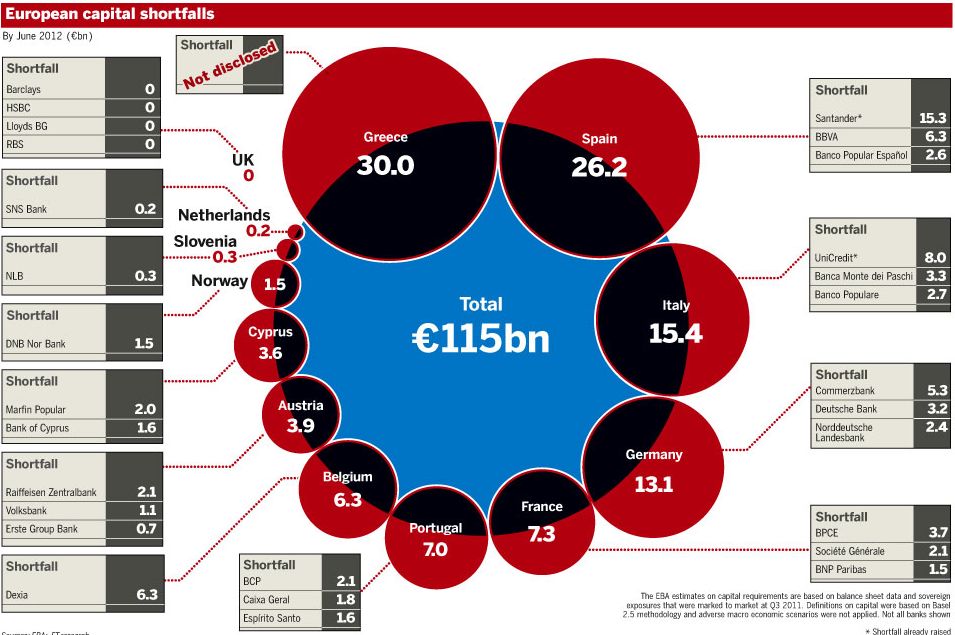Until a few weeks ago it appeared the eurozone monetary
crises would be worsening. Debt was piling up for several key
states, and those with the ability to assist lacked the political will to do
so. But the European Central Bank (ECB) stepped in with measures that have
postponed -- the European crisis.
In fact on Dec. 8 ECB President Mario Draghi still explicitly stated
that the ECB could not help: "We
have a treaty, and Article 123 prohibits financing of governments."
But the ECB changed its stance just one day later, leaking news that it
was prepared to
purchase up to 20 billion euros a week of stressed eurozone government debt.
That amounts to potentially one trillion euros per year. Not only is that more
than enough to buy up all of Italy's debt, it is
potentially enough to purchase roughly 80 percent of the 1.25 trillion euros in
eurozone debt that comes due in 2012. Even adding in planned new debt issuances
only raises the total volume of all sovereign eurozone debt to 1.5 trillion;
the ECB could potentially buy up two-thirds of all that by itself.
Thus at a single stroke, Draghi has collapsed the
dangerous stresses that were building up in the European financial system
because of lenders’ reluctance to provide short-term credits to banks.
What is not admitted, however, is that the new easy-money policy is
clearly a maneuver to circumvent the ban in the ECB’s constitution on lending
money to Euro zone governments, who were facing a huge problem over the next
three months refinancing their maturing bonds – some $600 billion worth.
Seeing the opportunity to do this, as well as shield themselves against
the risks of panicky flights by their depositors, the banks have rushed to take
advantage of the ECB’s new facility, immediately signing up for the equivalent
of $645 billion worth of the loans.
Backstopping the eurozone system even further, the ECB also formally
announced Dec. 9 that it was granting
all eurozone banks access to unlimited, low-interest liquidity loans with up to
a three-year maturity. There have been similar programs offered before, but
never with such long terms, such low rates or in such volumes. The liquidity
program should prevent any eurozone bank from defaulting on its debts as well
as granting them sufficient credit access that all may continue to participate
in the sovereign debt markets if they so choose. Banks flocked to the new
facility: On the first day, the ECB granted 490 billion euros in such loans.
Barring severe miscalculations on the part of ECB officials managing the
purchases or national governments issuing the bonds on the issue of timing, it
will be impossible for a eurozone country to default in 2012.
Taken together, the ECB actions have turned the dissolution of the
eurozone in 2012 from a near-probability to a near-impossibility. Issues that
have been critical in recent months -- the poor and weakening state of European
banks, high and rising Italian borrowing costs, the possibility that eurozone
states will have their credit ratings slashed, the ability of the eurozone
bailout fund to raise large volumes of cash, the utter disinterest of the
Chinese and Arab oil states in assisting Europe -- suddenly became irrelevant.
There will still be a painful -- and deepening -- recession. There will
still be volatility as the ECB attempts to withhold assistance from time to
time to encourage reforms. But the European crisis, at least for now, has
departed the field of finance.

For updates click homepage
here